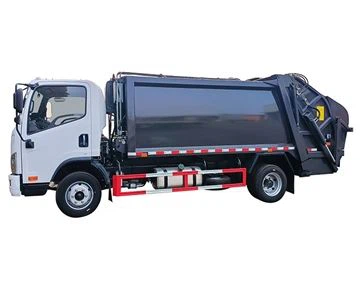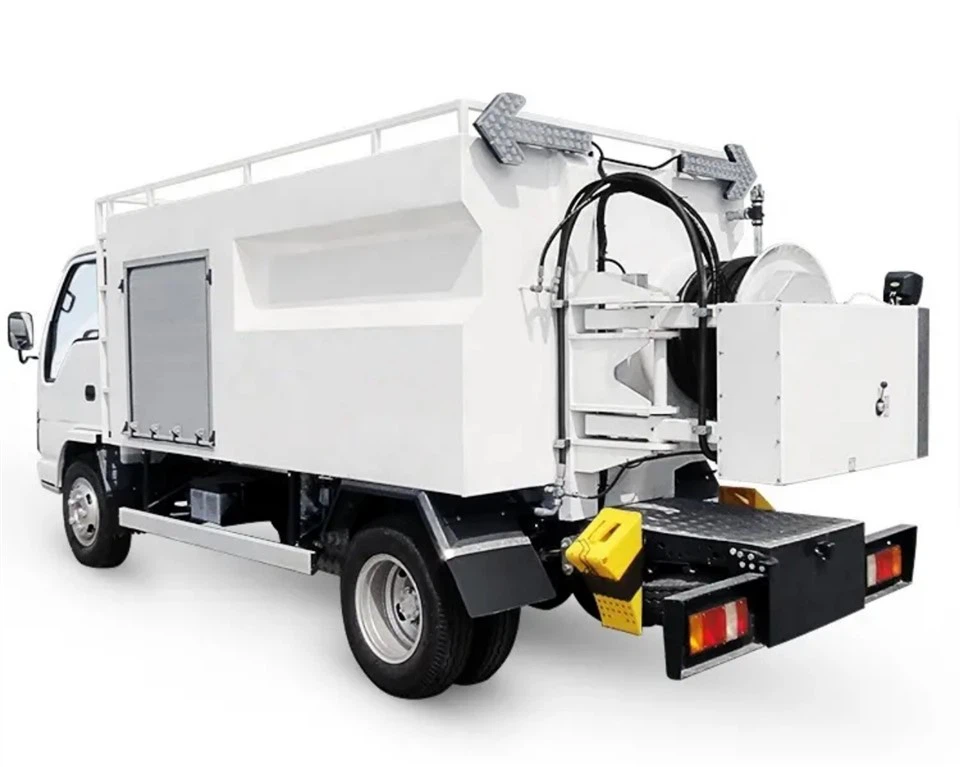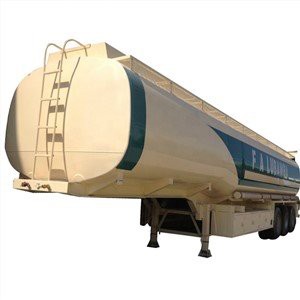Ultimate Guide to Water Truck Tanks: Everything You Need to Know

Water truck tanks are essential vehicles used in a variety of industries, including construction, agriculture, and firefighting. Understanding the components, types, and maintenance of these tanks can help optimize their use. In this comprehensive article, we will explore everything related to water truck tanks, providing practical tips and examples to ensure you make informed decisions.
What is a Water Truck Tank?
A water truck tank is a specialized container mounted on a truck designed to transport large volumes of water. These trucks come in various sizes and configurations to meet different industry needs.
Components of a Water Truck Tank

Water truck tanks have several key components that work together to ensure efficient operation:
- Tank: The main body that holds water, typically made of steel or aluminum.
- Pump: Used to transfer water from the tank to various applications, such as irrigation or dust control.
- Hoses: Flexible tubes that deliver water from the pump to the desired location.
- Nozzles: Attachments that control water flow and spray patterns.
- Manifold: A distribution system for directing water from the tank to different hoses or outlets.
Types of Water Truck Tanks
Several types of water truck tanks are designed for different applications:
1. Construction Water Tanks
Used at construction sites, these tanks are ideal for dust control and soil compaction. They usually have a capacity ranging from 1,500 to 5,000 gallons.
2. Agricultural Water Tanks
Agricultural water trucks transport water for irrigation and livestock. These tanks often have special fittings for direct application to fields and pastures.
3. Firefighting Water Tanks
Firefighting water trucks are equipped with larger tanks (typically 1,500 gallons or more) and specialized pumping systems to deliver water efficiently during emergencies.
4. Dust Control Water Tanks
Designed specifically for dust suppression on roads and construction sites, these tanks come with nozzles that spray water over large areas.
Choosing the Right Water Truck Tank
Selecting the right water truck tank involves considering factors such as capacity, material, and intended use. Here are some practical tips:
1. Determine Your Water Needs
Assess how much water you will need for your operation. This could vary greatly depending on the type of work being done.
2. Consider the Tank Material
Steel tanks are robust and durable, while aluminum tanks are lightweight and resistant to rust. Evaluate which material suits your needs better.
3. Evaluate Pump Performance
The pump’s flow rate and pressure determine how quickly and efficiently water can be transferred. Ensure the pump matches your operational requirements.
Water Truck Tank Maintenance
Regular maintenance is critical to the longevity and performance of water truck tanks. Consider the following maintenance tips:
1. Regular Cleaning
Ensure the tank is emptied and cleaned regularly to prevent algae and bacteria growth. Use a pressure washer for thorough cleaning.
2. Inspect for Leaks
Check for leaks and other damage on the tank and associated components regularly. Addressing minor issues early can prevent costly repairs.
3. Monitor Pump Performance
Regularly test the pump to ensure it is operating at the correct pressure and flow rate. Replace any worn-out parts as necessary.
Water Usage Regulations
Different areas have various regulations concerning the use of water trucks, especially for agricultural or firefighting purposes. Here are some guidelines:
1. Licensing and Permits
Depending on your locality, you may need specific licenses or permits to operate a water truck. Check with local authorities for compliance.
2. Water Quality Standards
Ensure the water you transport meets local quality regulations, especially when used for agriculture or public consumption.
Practical Applications of Water Truck Tanks
Water truck tanks have numerous practical applications across different sectors:
1. Construction Sites
Used for dust control and site cleanup, reducing airborne particulates to improve worker safety and environmental impact.
2. Agricultural Irrigation
Transport water directly to fields to ensure crops receive adequate hydration, especially in areas with limited water supply.
3. Firefighting
Provide immediate water supply during fires, especially in remote areas with no hydrant access, ensuring quick response times.
4. Road Maintenance
Used to suppress dust on unpaved roads, enhancing safety for drivers and reducing environmental impact.
Cost Factors for Water Truck Tanks

The cost of purchasing or renting a water truck tank can vary significantly based on several factors:
1. Tank Size and Capacity
Larger tanks cost more due to increased materials and manufacturing complexity. Consider your actual water needs before making a choice.
2. Material
Steel tanks are generally less expensive than aluminum but may have higher long-term maintenance costs due to rusting.

3. Features
Additional features, such as specialized pumps and hoses, can increase the cost but may significantly enhance operational efficiency.
Top Brands of Water Truck Tanks
When considering a water truck tank, certain brands stand out for their reliability and quality:
| Brand | Key Features | Average Cost |
|---|---|---|
| PolyJohn | Durable, corrosion-resistant, various sizes | $10,000 – $15,000 |
| Water Tractor | High-capacity, efficient pumps | $15,000 – $25,000 |
| GMC | Versatile options, reliable performance | $12,000 – $20,000 |
Frequently Asked Questions (FAQ)
1. How much water can a water truck tank hold?
Water truck tanks can hold anywhere from 1,000 to 6,000 gallons, with larger models available for specific applications.
2. Can I use a water truck tank for potable water?
Yes, but you need to ensure the tank is made of food-grade materials and cleaned properly to meet sanitary standards.
3. What are the commonly used pump types for water truck tanks?
The most common types are centrifugal, diaphragm, and gear pumps, each suitable for different application needs.
4. How do you prevent algae growth in a water truck tank?
Regular cleaning and the use of chlorine or other approved algaecides can help manage algae growth in tanks not used frequently.
5. Are water truck tanks environmentally friendly?
When used responsibly, such as for dust control and irrigation, water truck tanks can contribute positively to environmental management.
6. What maintenance does a water truck tank require?
Regular inspections, cleaning, and ensuring the pump is functioning properly are key maintenance tasks for water truck tanks.
